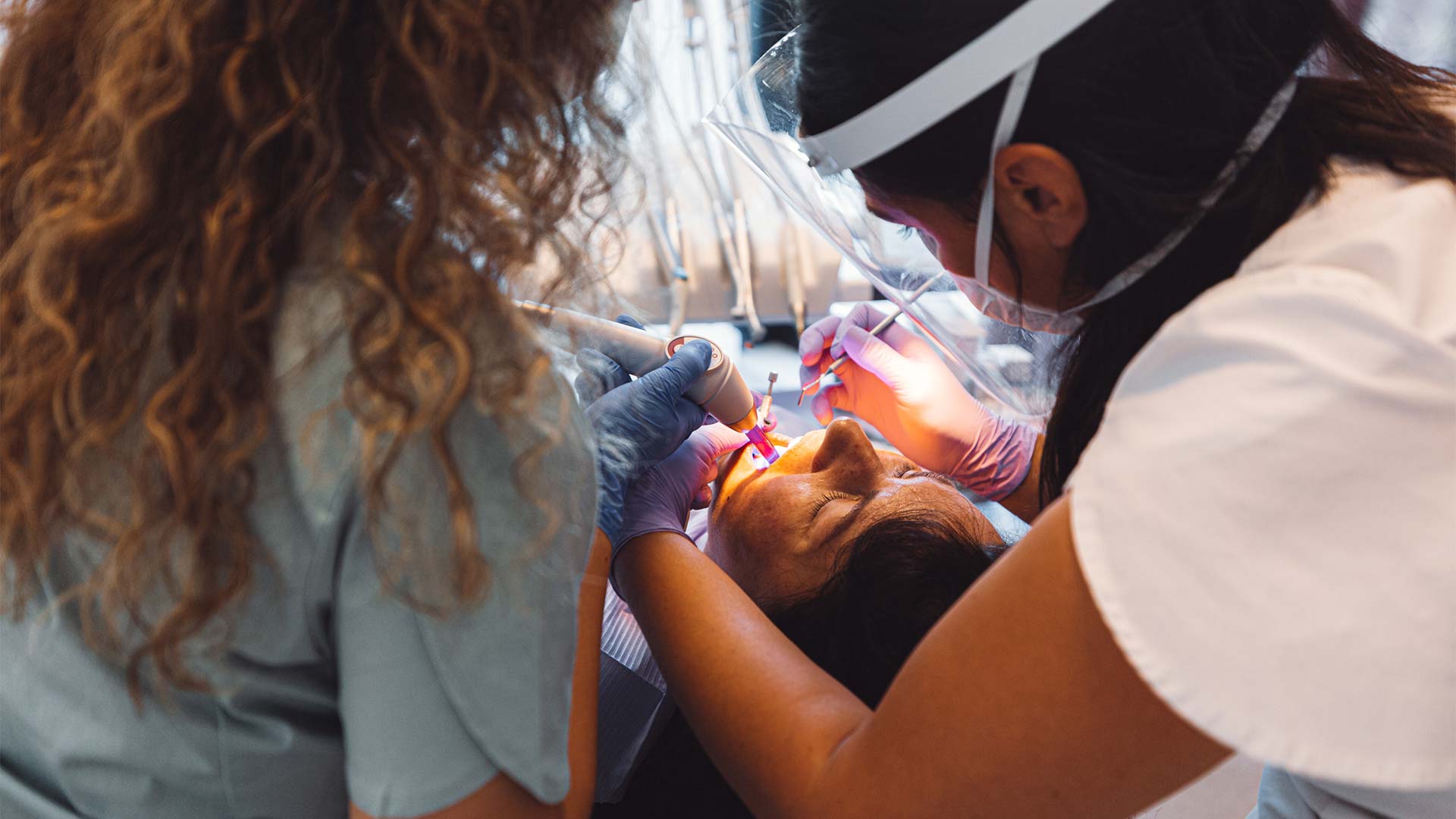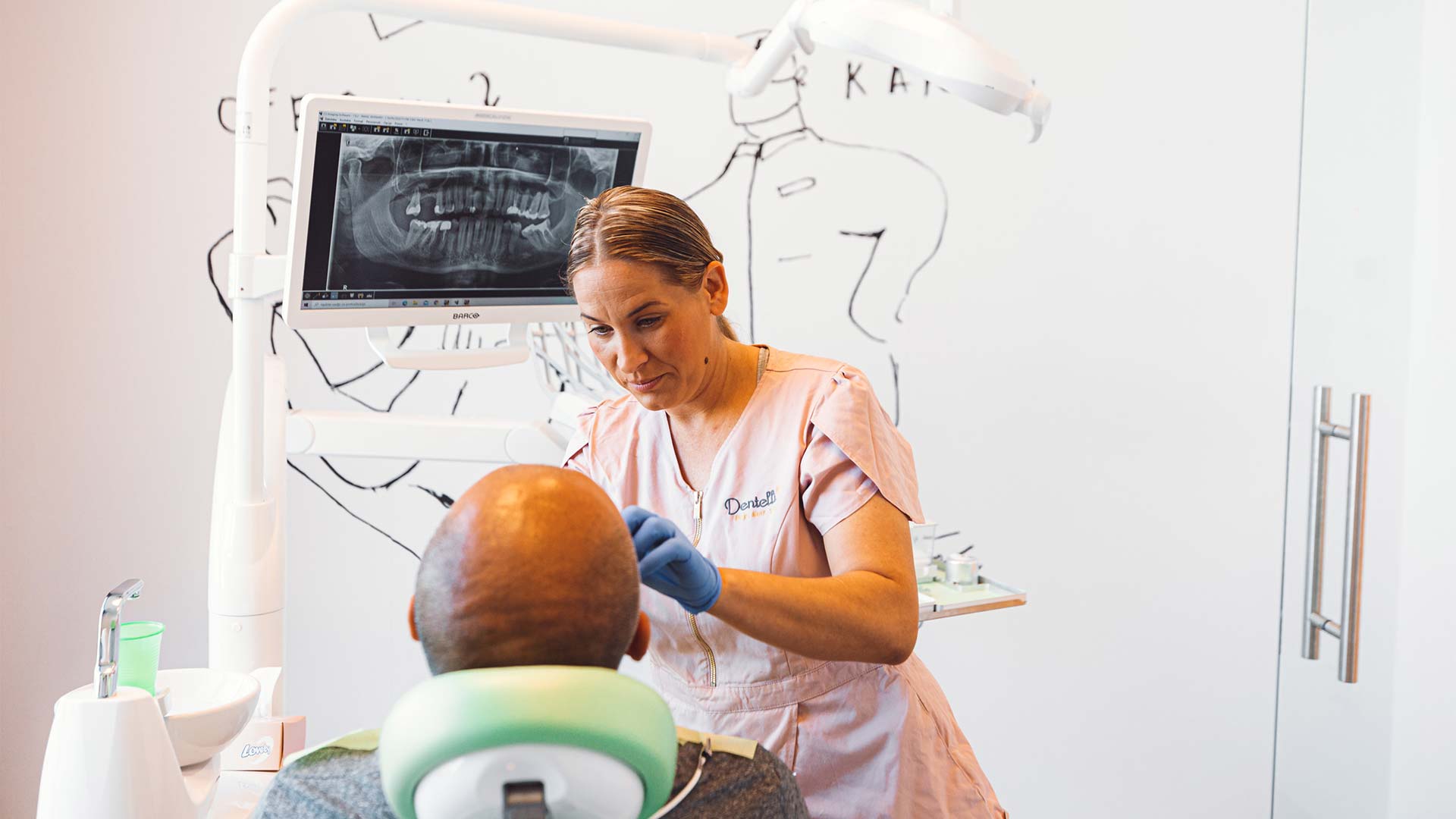
29 Jun Most Common Types, Causes and Symptoms of Toothache
Today’s blog post is meant to give you more information that could be helpful with self-diagnosing tootchache. Of course, always when noticing a change or pain in your tooth it’s best to call and set your appointment as soon as possible. We can always discuss when you arrive for your checkup what are the most common types causes and symptoms of toothache.
It’s probably clear to everyone that the only way to successfully treat a toothache is to go to the dentist. But for whatever reason, be it financial or bad timing, we sometimes need a little help from the things we have in our kitchen counter. So to help you out, we have compiled a list of best home remedies for a toothache and researched their (in)effectiveness!

Types and causes of toothaches
Dull pain
It most often occurs due to a periodontitis
What is periodontitis?
Plaque forms on the teeth because bacteria that are normally found in the oral cavity come in contact with sugar or starch from food. The bacteria damages the enamel, penetrates the gums and causes inflammation. A so-called “pocket” is created, and tooth loss can occur. You have the feeling that one tooth is taller than the others or that you have something between your teeth.
Sharp, pulsating pain
It is very easy to recognize this type of pain because you feel as if your heart is beating in your mouth. If you are bothered by throbbing pain it means that the source is the tooth itself and home remedies can only help temporarily but the pain will keep returning, until you go to the dentist.
Sensitivity to hot or cold
There are two possible causes of this kind of pain, either the dental nerve is inflamed or the tooth cervix is exposed. In the first case, try putting on ice packs on your face for about 20 minutes with breaks of about half an hour. In the second case, brush your teeth with a toothpaste for sensitive teeth and a soft toothbrush.
Swollen face and toothache
If part of your face swells you probably have a root canal infection and a tooth abscess that your dentist must squeeze out and then treat. It sounds awful but the process is quick and the relief you will feel is worth a visit to the dentist. Only a visit to the dentist will help you because this is a sign of a serious infection!
In addition to huge pains, an abscess can lead to poisoning of the whole organism!

Pain while wearing braces
This pain is completely normal and not a big cause for concern. If you have questions about fixed orthodontic therapy for adults, you can read the answers here.
Pain after a visit to the dentist
If you have recently completed prosthetic work such as crowns, bridges or implants and you feel pain while eating it means that the treated area is more elevated. You just need to not chew on the painful side and visit your dentist if the pain continues.
Potentially dangerous methods of home remedies:
Whiskey and brandy
These favorite methods work great if you get drunk so you no longer feel any pain, but alcohol is not the solution to toothache. Some people use these methods in a way that they soak cotton in alcohol, and yes, it can sometimes help. But it generally produces more harm than good.
Hydrogen peroxide
This is a popular method on the internet, but if hydrogen peroxide is used incorrectly, it can cause an even stronger reaction, and you should never swallow it. It can also damage the skin, eyes and respiratory tract!
How to Relieve Toothache in Children?
With children, it’s easiest to use slightly tastier methods like mint tea or just use cold compresses. In any case, avoid all methods where they could swallow something dangerous. You can give the little ones their regular toothpaste and then just rinse their mouths with salt water. We know you already know that you should never give children brandy, but just in case – don’t give them alcohol!
How to Relieve Toothache After a Dentist Visit?
Consult your dentist about possible pain after the procedure or repair, never alleviate the pain on your own.
Is it Necessary to go to The Emergency Room Because of a Toothache?
In some cases yes! If you have the following symptoms with a toothache:
- Vomit
- Heavy breathing
- Body aches
- Nausea
- Sweating
Does a Toothache Go Away on its Own?
It may pass but it will always come back. When you cry that you will call the dentist in the morning, and in the morning the toothache goes away, so you do not call the dentist, it is “gone”. It will come back, and it will come back even worse. Remember, when you notice something you are worried about it’s always best to call us and set up an appointment, we will be happy to talk you trough what are the most common types causes and symptoms of toothache.
Download the Dentelli App
Google Play Store – Apple App Store
Sign up for our Newsletter
Check us out on Social Media!
Dentelli Facebook – Dentelli Instagram
Read more about us here.
Book your treatment here.
